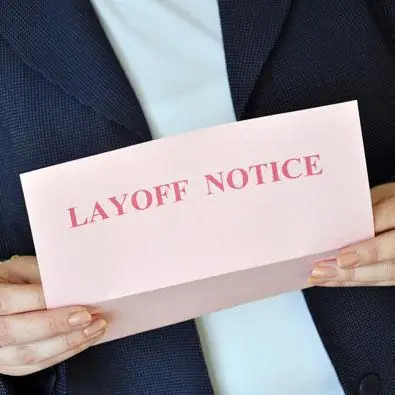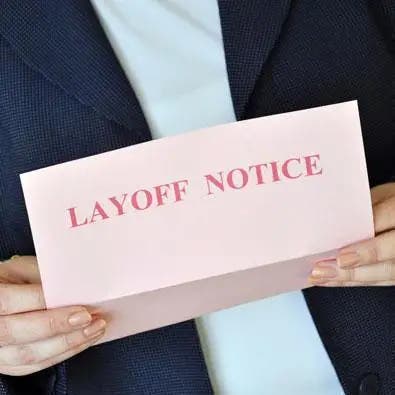Commenting on the unspecified number of layoffs in Intel’s Sales and Marketing Group, North America channel executive Jason Kimrey tells CRN that “partners remain a critical part of Intel’s transformation and we will continue to invest and grow with them in the future.”

Intel initiated a new round of layoffs this week that affected an unspecified number of employees in its Sales and Marketing Group, CRN has learned.
A spokesperson for the Santa Clara, Calif.-based chipmaker confirmed on Thursday that it has made job cuts as part of a reorganization but did not provide any further details. The Sales and Marketing Group is led by Christoph Schell, who is Intel’s chief commercial officer.
“With the objective of continuing to deliver on company strategy and drive outcomes for its customers, Intel’s [Sales and Marketing Group] announced changes to its organizational structure,” the Intel representative said in a statement.
“We are confident in Intel’s future and are committed to supporting all employees through this process, including treating impacted employees with dignity and respect,” they added.
In an additional statement to CRN, Jason Kimrey, vice president of Intel’s North America commercial and partner sales organization, said the chipmaker’s “partners remain a critical part of Intel’s transformation and we will continue to invest and grow with them in the future.”
This is the latest round of layoffs to hit Intel since CEO Pat Gelsinger announced in October 2022 that the semiconductor giant planned to cut spending by as much as $10 billion through 2025 to weather an “abrupt and pronounced slowdown in demand.”
The company has not said how many employees it has laid off since then. The only numbers disclosed by Intel have been regarding individual layoff rounds impacting 50 or more employees within a 30-day period at its offices in California, as required by the state’s Worker Adjustment and Retraining Notification (WARN) Act.
The layoffs were enacted the same week Intel outlined a new financial reporting structure that separates the company’s product design businesses from its chip manufacturing operations, revealing that the former suffered from a $7 billion operating loss last year.
Intel is separating the businesses in a bid to turn its chip-making arm, now known as Intel Foundry, into an independent contract chip manufacturing business that competes with Asian foundry giants TSMC and Samsung.
When it announced the new financial reporting structure on Tuesday, the company said Intel Foundry’s “operating losses are expected to peak in 2024” as it completes Gelsinger’s node acceleration plan. The chip manufacturing business is expected to “achieve break-even operating margins midway between now and the end of 2030, when it targets 40 percent non-GAAP gross margins and 30 percent non-GAAP operating margins,” it added.

 www.crn.com
www.crn.com

Intel initiated a new round of layoffs this week that affected an unspecified number of employees in its Sales and Marketing Group, CRN has learned.
A spokesperson for the Santa Clara, Calif.-based chipmaker confirmed on Thursday that it has made job cuts as part of a reorganization but did not provide any further details. The Sales and Marketing Group is led by Christoph Schell, who is Intel’s chief commercial officer.
“With the objective of continuing to deliver on company strategy and drive outcomes for its customers, Intel’s [Sales and Marketing Group] announced changes to its organizational structure,” the Intel representative said in a statement.
“We are confident in Intel’s future and are committed to supporting all employees through this process, including treating impacted employees with dignity and respect,” they added.
In an additional statement to CRN, Jason Kimrey, vice president of Intel’s North America commercial and partner sales organization, said the chipmaker’s “partners remain a critical part of Intel’s transformation and we will continue to invest and grow with them in the future.”
This is the latest round of layoffs to hit Intel since CEO Pat Gelsinger announced in October 2022 that the semiconductor giant planned to cut spending by as much as $10 billion through 2025 to weather an “abrupt and pronounced slowdown in demand.”
The company has not said how many employees it has laid off since then. The only numbers disclosed by Intel have been regarding individual layoff rounds impacting 50 or more employees within a 30-day period at its offices in California, as required by the state’s Worker Adjustment and Retraining Notification (WARN) Act.
The layoffs were enacted the same week Intel outlined a new financial reporting structure that separates the company’s product design businesses from its chip manufacturing operations, revealing that the former suffered from a $7 billion operating loss last year.
Intel is separating the businesses in a bid to turn its chip-making arm, now known as Intel Foundry, into an independent contract chip manufacturing business that competes with Asian foundry giants TSMC and Samsung.
When it announced the new financial reporting structure on Tuesday, the company said Intel Foundry’s “operating losses are expected to peak in 2024” as it completes Gelsinger’s node acceleration plan. The chip manufacturing business is expected to “achieve break-even operating margins midway between now and the end of 2030, when it targets 40 percent non-GAAP gross margins and 30 percent non-GAAP operating margins,” it added.

Intel Confirms Layoffs In Sales And Marketing Group
Intel confirmed to CRN it has made an unspecified number of layoffs as part of a reorganization of its Sales and Marketing Group.

